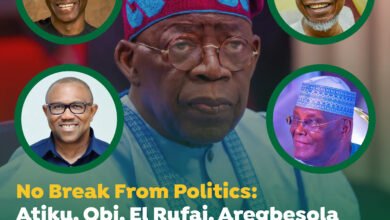
Anti-government activists and their partisan collaborators in Nigeria swiftly invoke constitutional freedoms to criticize the government and assemble in protest over issues of their choice. They champion freedom of speech when it criticizes the government and advocate for citizens’ rights to participate in public discussion when they ridicule the nation and encourage disruptive actions over personal grievances.
While the permission of such speech and actions may reflect the existence of true democracy, these activists seem to forget or conveniently dismiss that rights are like highways with lanes flowing in both directions. The same freedoms that empower them to dissent also grant others the right to support, agree, and mobilize in opposition to their approach.
When faced with a divergent view, they often respond with smears, abuse, and intimidation. This is particularly true when the view favors caution, dialogue, and evidence-based assertions over their reckless “tear it down” mantra. Individuals with such views are accused of being influenced by inducements and bribes. They are marked for destruction. Some get reported to their employers for termination, while others contend with attempts to silence their voices through coordinated reports to social media administrators.
The situation in Nigeria is such that critics are intolerant of criticism. Seasoned protesters brutally shut down protests of their own actions. Like wolves in sheep’s clothing, they wear the garb of democrats while insisting on a monopoly of speech to float ideas and demands without scrutiny or opposition. However, democracy thrives when all sides are permitted a say and guaranteed equal freedoms and opportunities. This is crucial when activists seeking to monopolize the microphone broadcast half-baked governance ideas and make impractical demands.
For example, the organizers of the so-called “ten days of rage” nationwide protest presented a list of ten demands that read like something composed by basic school pupils ignorant of the way the governance system in Nigeria works. One demand was to “end subsidy scam and revert pump petrol price to N100”. This demand is both contradictory and impractical. If “ending the subsidy scam” means abolishing fuel subsidy, it would lead to an increase in petrol price, not a decrease. On the other hand, if the government were to resume subsidy to sell petrol at N100, it would bankrupt the government.
They also requested a transition to a unicameral legislature, effectively calling for the abolition of the Senate. This argument has been refuted by those who observe the lopsided nature of representation in the House of Representatives which could result to a region dominating the business of lawmaking in a plural country.
Essentially, they presented ill-considered ideas conceived from their knee-jerk, emotional meetings as representative of Nigerians’ positions on important policy and legislative matters. It is therefore unsurprising that Nigerians in great numbers are denouncing the fraud. They do not agree that an administration barely a year old should be held responsible for decades-old ills and maladministration. They also do not think that a protest, which postures as leaderless, making it unaccountable and vulnerable to hijack, is the best approach to voice opposition to government policies.
Nigerians who do not wish to see Nigeria burn like it did during END SARS, or like Kenya did recently, are saying no. They are exercising their right not to protest, and they appear to be in the majority. If these activists genuinely respect democracy and human rights, they will respect this voice and shelve their plans for destruction.
By Yusuf Tanimola
Do you have an opinion article you would like to publish? Send to opinions@greenpress.ng.





